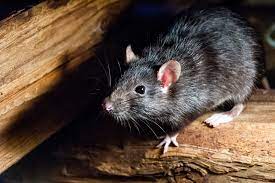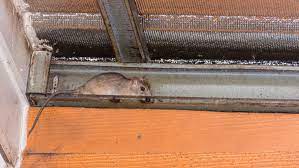Hear crawling in your ceiling can be a disturbing and unsettling experience. It can be difficult to sleep or relax knowing that there is something moving around above your head. In some cases, the crawling may be caused by a harmless animal, such as a mouse or a squirrel. However, it is also possible that the crawling is caused by something more serious, such as a structural problem or a pest infestation.

What to Do
If you are hearing crawling in your ceiling, there are a few things you can do to investigate the cause.
- Listen carefully to the noise. Try to determine the location of the noise and the type of sound it is making. Is it a scratching sound, a scurrying sound, or something else?
- The type of noise you hear can help you to narrow down the possible causes. For example, a scratching sound is more likely to be caused by an animal, while a scurrying sound is more likely to be caused by pests.
- Look for signs of pests. Check for droppings, nests, or other signs of animal activity in your attic or crawl space.
- Pests often leave behind signs of their presence. Look for droppings, nests, or other debris. You may also see the pests themselves, such as mice or ants.
- Inspect your ceiling. Look for cracks, holes, or other openings that could allow animals or pests to enter your home.
- Animals and pests can enter your home through even the smallest openings. Look for cracks, holes, or other gaps in your ceiling. You may also want to inspect your attic or crawl space for any openings that could allow pests to enter your home.
Possible Causes
There are a number of possible causes for hearing crawling in your ceiling. Some of the most common causes include:
- Animals: Mice, rats, squirrels, and other small animals are common causes of crawling noises in ceilings. These animals may be looking for food, water, or a place to nest.
- Mice and rats are the most common animals that cause crawling noises in ceilings. These animals are attracted to food and water, and they often look for places to nest in warm, dark areas. Squirrels are less common, but they can also cause crawling noises in ceilings. Squirrels are looking for food and nesting material, and they often enter homes through attics or crawl spaces.
- Pests: Ants, termites, and other pests can also cause crawling noises in ceilings. These pests may be damaging your home’s structure or eating away at your belongings.
- Ants are a common pest that can cause crawling noises in ceilings. Ants are looking for food, and they often enter homes through cracks or holes in the foundation. Termites are a more serious pest that can cause significant damage to your home’s structure. Termites often enter homes through cracks or holes in the foundation, and they can spread quickly if not treated.
- Structural problems: In some cases, crawling noises in ceilings can be caused by a structural problem, such as a loose roof tile or a damaged joist.
- Loose roof tiles can cause a rattling or scurrying sound when they are hit by rain or wind. Damaged joists can also cause a creaking or groaning sound.
Read too: Should You Insulate Unfinished Basement Ceiling
How to Get Rid of the Crawling
Once you have determined the cause of the crawling, you can take steps to get rid of it.
- Animals: If animals are the cause of the crawling, you can try to trap them or seal up any openings that allow them to enter your home.
- There are a number of different ways to trap animals. You can use live traps, snap traps, or glue traps. You can also seal up any openings that could allow animals to enter your home.
- Pests: If pests are the cause of the crawling, you can use pesticides or other pest control methods to get rid of them.
- There are a number of different pesticides and pest control methods available. You can choose a method that is appropriate for the type of pest you are dealing with.
- Structural problems: If a structural problem is the cause of the crawling, you will need to have it repaired by a professional.
- A structural problem is a serious issue that should be repaired by a qualified professional.
Conclusion
Hear crawling in your ceiling can be a sign of a serious problem. It is important to investigate the cause of the crawling and take steps to get rid of it. By following the tips in this article, you can help to ensure that your home is safe and secure.
